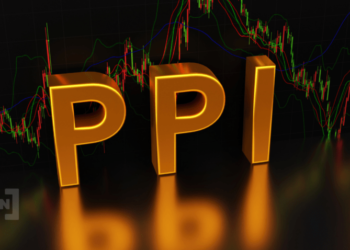An Economist and Lecturer at the Department of Economics, University of Ghana, Dr. Adu Owusu Sarkodie, expects Ghana’s inflation to remain in single digits at least for the next 3 years.
He said if the country Is able to recover from the impact of the COVID 19 pandemic by the end of next year, it would still be able to keep inflation under control.
“And we expect it to be in the single-digit for a long time. I expect this single-digit inflation to continue for the next three years; the medium term”.
Speaking in an interview with the Vaultz News, Dr. Sarkodie stated that the declining exchange rate depreciation, declining food prices, and the reduction in utility prices are the main factors responsible for the reduction in the high inflation rate.
He reveals that Ghana’s current average exchange rate depreciation is about 3.1% which is the lowest in many years
He points out that Ghana’s inflation was 7.8% before the outbreak of the coronavirus pandemic. However, inflation rose sharply driven mainly by the increment of food prices because of the lockdown, and its associated panic buying.
He reiterates that there are many factors responsible for the reduction in inflation, but the major ones are the reduction in food prices because of the lifting of the lockdown and the effect of the utility prices.
He commended the government for its prudent management of the macroeconomy.
“I think this administration has done well to keep macroeconomic stability, to keep inflation down, exchange rate depreciation down, the interest rate is declining, treasury bill rates were all declining before COVID struck”.
He explained further that the declining crude oil prices have also had some positive effect on the declining inflationary pressures in the country. According to him, before the beginning of the year, crude oil price was $60 per barrel but now it’s around $41 per barrel.
“So, the fall in crude oil prices has impacted positively on the reduction of inflation. You know Ghana is practicing automatic adjustment so there is no need for government intervention when prices change. We are allowing demand and supply to determine the price at the pump level”.
Currently, the national year-on-year inflation rate stands at 9.8% as of November 2020, which is 0.3 percentage points lower than last month than the 10.1% recorded in October.
The Government Statistician, Professor Samuel Anim, said the drop was the fourth consecutive monthly decline post-COVID-19.
Month-on-month inflation between October 2020 and December was 0.3 percent. This consistent with the positive month-on-month inflation that was observed in the previous months (0.2 % in October).
Even though dropped marginally between October and November, food remains the predominant driver of year-on-year inflation contributing 53.0% to the total inflation in November.
Within the food Division, fruits and nuts (21.7%) were the Subclasses with the highest rates of inflation followed by vegetables (19.5%). Regional analyses revealed that Greater Accra is the only Region that recorded a food inflation rate of over 8 percent (13.7%).
In contrast to Food inflation, Non-Food inflation was stable year-on-year at 8.3 percent, this is the lowest rate since April 2020. Month-on-month Non-Food inflation was also stable at 0.3 percent. The ‘Housing, Water, Electricity, and Gas’ Division contributed 22.6 percent to the total inflation.
Imported inflation went up marginally in November from 5.1 percent recorded in October to 5.6 percent in November. Inflation of local goods however saw a decline from an average of 12.2 percent recorded in October to 11.5 percent in November.























